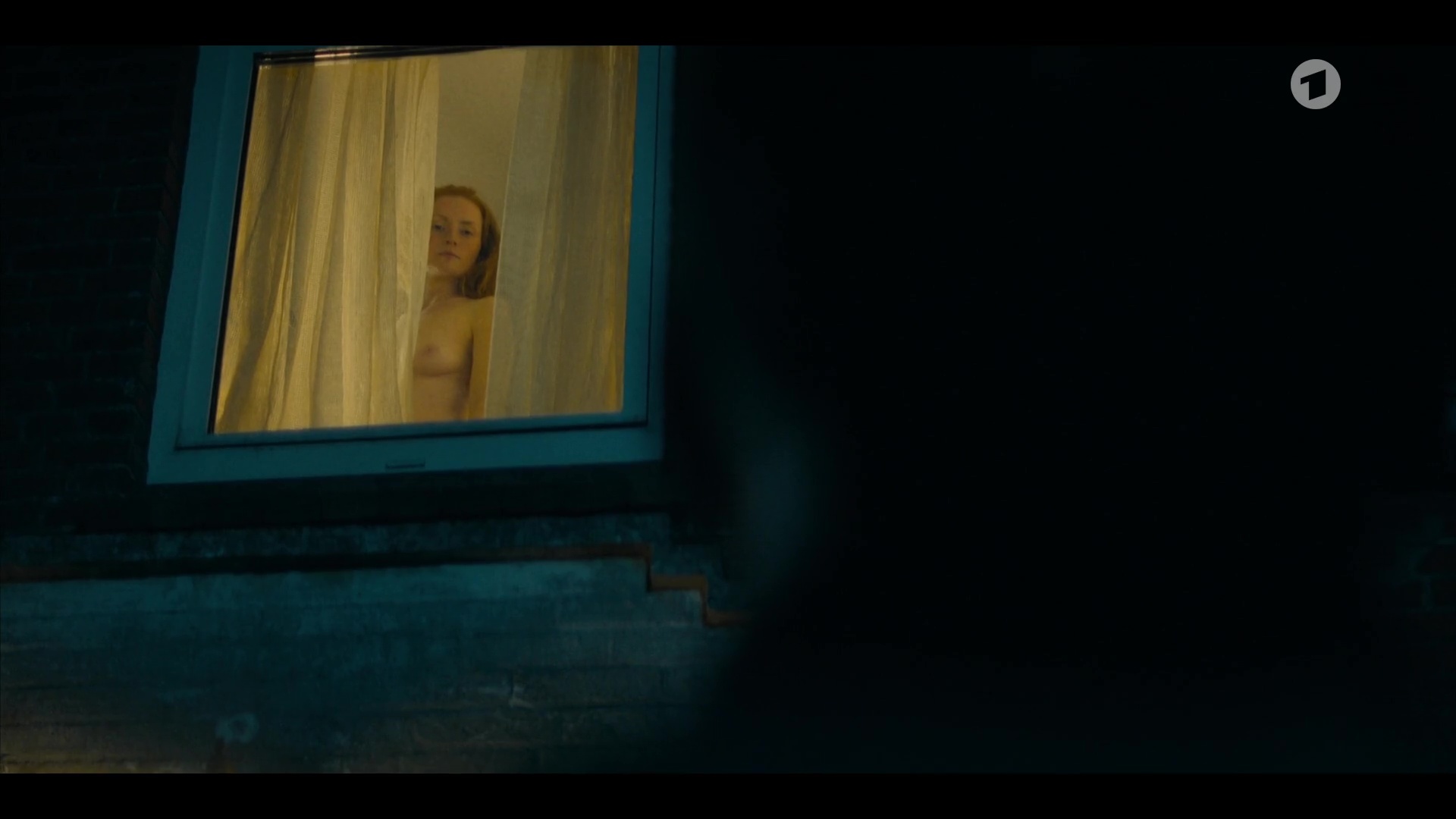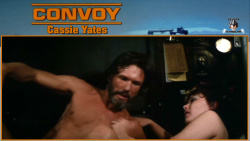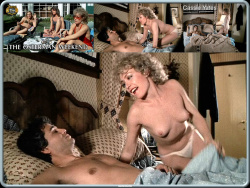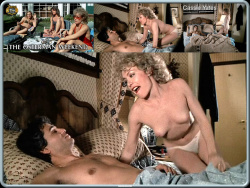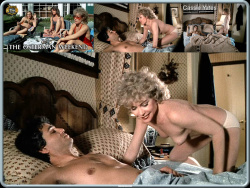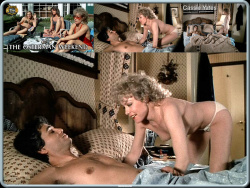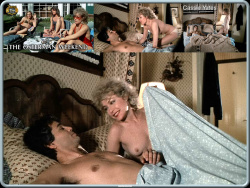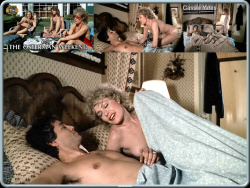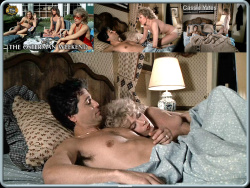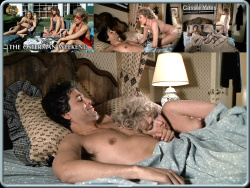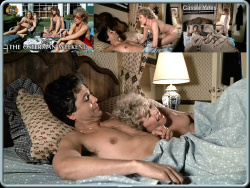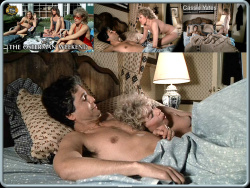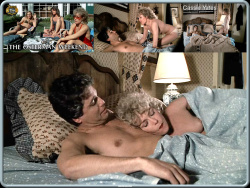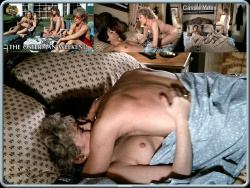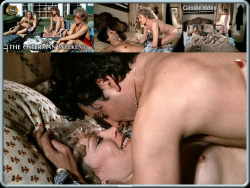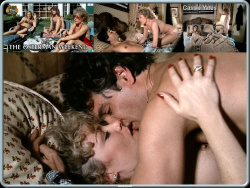Author: UncleScoopy



The pitch:
Yet another twist on “The Wicker Man,” in which mainstream law enforcement investigates disappearances in an isolated community somehow tied to a pagan cult.
In a moment of cowardice, Detective Carl Mørck sends Rose, his junior colleague in Department Q, to the remote Danish island of Bornholm to answer his old colleague Christian Habersaat’s repeated requests. But during his forced retirement ceremony Christian kills himself sending Rose into a journey deep into her own traumatic past. Later, the newly engaged Carl arrives on the island where he, Rose and Assad are embroiled into an old cold case of a girl found dead hanging in a tree. The killing, officially written up as a traffic accident, has connections to both the local Police precinct and a cult of sun worshipers from where young women have vanished without trace for years.
When asked if he can repair the blades, the owner replied “I can-can.”
This is from a 2006 movie called Cashback.
My favorite among this group:
“Go away! Last words are for fools who haven’t said enough!”
— Karl Marx
================
Here are some others, both real and apocryphal, not in the article. None of these are 100% legitimate, but some are close. As it often turns out, everything we believe is wrong.
“Either this wallpaper goes or I do.”
(This is a shortened version of a Wilde quote which was certainly not uttered on his deathbed, and may not have been uttered at all.)
Some say that Wilde actually said “My wallpaper and I are fighting a duel to the death. One or the other of us has to go” to a visiting friend a few weeks before his death in Paris in 1854. Others say that the quote is completely fabricated.
“Dying is easy. Comedy is hard.”
(Legend.)
This one is attributed to Edmund Gwenn, or Edmund Kean or Edwin Booth. People obviously think it must have been some notable actor named Ed, but not Asner. It’s most likely that none of them ever said it.
“Thomas Jefferson survives.”
(This one may be a legitimate deathbed quote from John Adams, but it has been partially debunked and in any case did not represent his last words.)
They are the words supposedly uttered by John Adams as he was dying on America’s 50th birthday (July 4, 1826), the day when the second and third presidents both died. Historian Andrew Burstein, in “America’s Jubilee: How in 1826 a Generation Remembered Fifty Years of Independence,” examined the evidence and found: (1) that the quote had been embellished; (2) that it was actually said on the 3rd of July; (3) that it was actually Adams’s second-last utterance; and (4) that Jefferson was alive when Adams allegedly said it, but dead before Adams actually passed.
It is firmly established only that Adams said “Thomas Jefferson …” on the evening of the 3rd, but what followed was indistinct. His actual last words were uttered after midnight, when he asked a simple, pedestrian question, “Is it the 4th?” He would hang on in silence until the evening of the 4th, while Jefferson passed away about noontime.
“I see that you have made 3 spelling errors.”
(Somewhat legitimate – with caveats.)
Just before his execution in 1790, French aristocrat Marquis de Favras supposedly read his death warrant and said something very similar to the quote above, but these precise words actually come from a play by Victor Hugo (“Marion de Lorme”), written in 1828 and performed in 1831. That doesn’t mean the quotation is totally debunked. Four years before Hugo’s play was performed, Louis Marie Prudhomme wrote a book called “Histoire impartiale des révolutions de France depuis la mort de Louis XV,” in which he noted, “Favras then quietly corrects the spelling and punctuation errors made by the clerk in his statement.” It is therefore likely that Hugo was inspired to write his line by what he had read in Prudhomme’s book. In time, Hugo’s scripted line was assumed to represent the actual words of Favras.
“They couldn’t hit an elephant at this distance.”
(Possibly legitimate. These seem to have been among the speaker’s last words.)
These were allegedly the last words of Major General John Sedgwick, a Union Army commander, before he was shot and killed by a Confederate sniper in 1864. Some say Sedgwick’s actual quote was “Why are you dodging like this? They couldn’t hit an elephant at this distance.” It would be a great, highly cinematic story if he had been shot just as he finished that sentence, but that’s probably not how it happened. Others say that while the words are often portrayed as if they were his absolute last statement, this is unlikely to be true.
“Leni Klum looking great and showing big boob cleavage in a black dress while attending the David Yurman event in New York City!”
“This is a video of her in her underwear, not sure when it is from, maybe it’s a paid campaign and not shameless hot body attention seeking.”
Candid photos of model Joan Smalls wearing a bikini at the beach in Tulum!
“Behind the scenes photos of Zazie Beetz posing in a sheer bra for a photo shoot with WhoWhatWear magazine back in 2019!”
Possibly too good. Instagram may remove this one because her pierced nipples are clearly visible.
In case Instagram removes it, here is a back-up.
1977 – Rolling Thunder, recently released in 2160hd
1978 – Convoy
1983 – The Osterman Weekend
She was popular in the late 70s and early 80s, but hasn’t been seen onscreen in about 30 years.
She is still alive, living in Tucson, as far as I know, although her Facebook page has not been updated since 2020. She published a Christian children’s book that same year.
One of them reminded me of an obscure news item from back in the day. Who remembers “Kenneth, what is the frequency?”
On October 4, 1986, while walking along Park Avenue to his New York apartment, CBS news anchor Dan Rather was attacked and punched from behind by a man who demanded to know “Kenneth, what is the frequency?”
In 1997, a TV critic writing in the New York Daily News solved the mystery, publishing a photo of the alleged assailant, William Tager, who received a 12.5-to-25-year prison sentence for killing NBC stagehand Campbell Montgomery outside The Today Show studio in 1994. Rather confirmed the story: “There’s no doubt in my mind that this is the person.” New York District Attorney Robert M. Morgenthau said “William Tager’s identity as the man who attacked Mr. Rather was established in the course of an investigation by my office.” Tager claimed he thought television networks were beaming signals into his brain. When he murdered the stagehand, Tager was trying to force his way into an NBC studio with a weapon, in order to find out the frequency the networks were using to attack him, so that he could block it.
I don’t think the significance of the name “Kenneth” has ever been determined.
“Great down blouse view of Salma Hayek’s big bikini boobs as she’s getting hosed with a waterhose while climbing aboard a yacht!”

